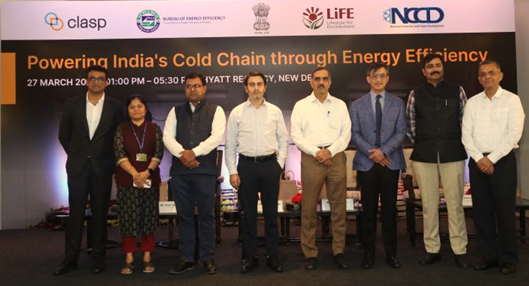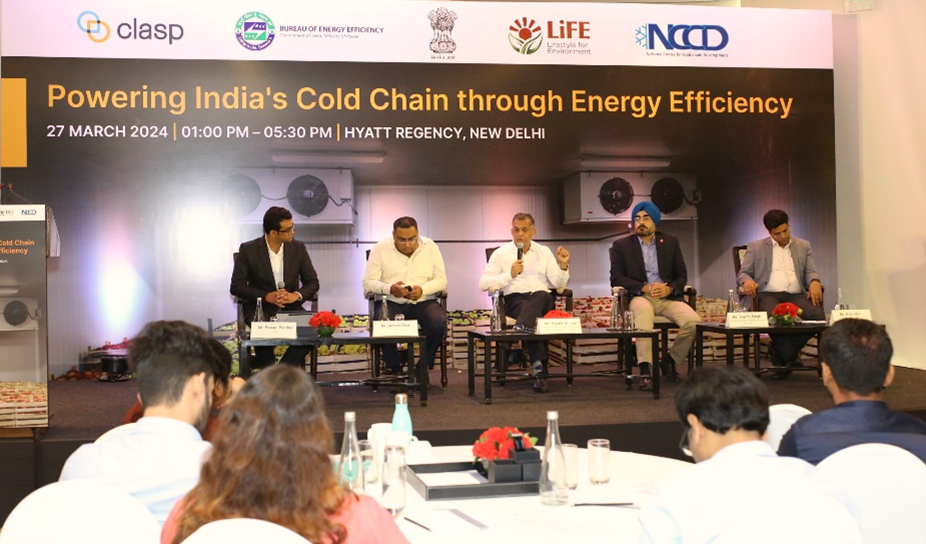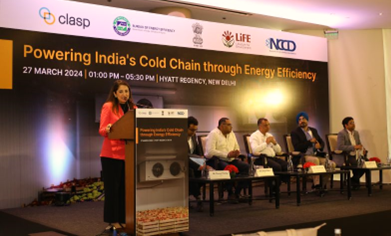
Shakti Sustainable Energy Foundation participated in the event ‘Powering India’s Cold Chain through Energy Efficiency’ organised by Bureau of Energy Efficiency (BEE), National Centre for Cold Chain Development (NCCD), and CLASP on March 27, 2024, in New Delhi. The event highlighted the role of Civil Society Organisations in advancing energy efficiency.

Sachin Kumar, Director, Shakti Sustainable Energy Foundation, speaking at the event said, “CSOs play a pivotal role in advancing energy efficiency in cold storage sector by undertaking relevant research and providing evidence to decision makers from policy and business spheres. In the past, CSOs have been instrumental in accelerating the adoption of various energy-efficient technologies and solutions across various sectors.”
The Government of India recognises the importance of development of a sustainable and clean cold chain as an essential element of reforms to address these challenges, promote agricultural development, and entail benefits for farmers’ economic well-being, mitigating food losses and alleviating hunger. The India Cooling Action Plan (2019) also recognises the energy-efficient cold chain as a pathway to entail emission reduction and environmental benefits through reducing cooling demand across sectors by 20-25%, refrigerant requirement by 25-30%, and energy consumption by 30% up to 2037 through improved designs, including proper insulation and the use of energy-efficient cooling equipment entailing.

The Bureau of Energy Efficiency is implementing measures to improve energy efficiency in cold storage facilities, micro-cold rooms, and packhouses. This initiative involves collaboration from various stakeholders: the government providing policy support, industries innovating affordable technology, civil society organisations conducting research and raising awareness, and funding organisations scaling up financing. The conference serves as a platform for these stakeholders to unite and identify opportunities for integrating energy efficiency into the national cold-chain infrastructure.
